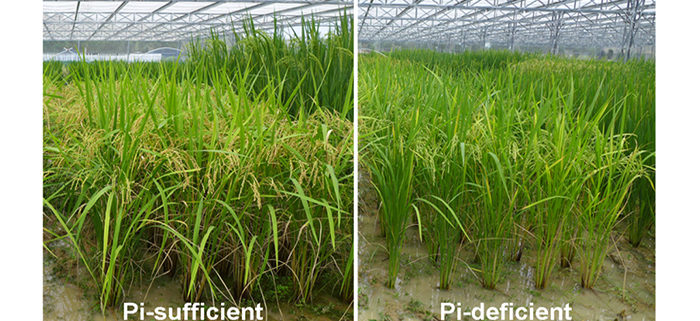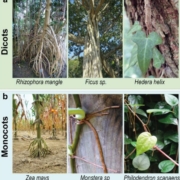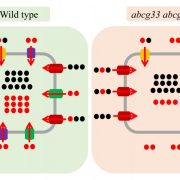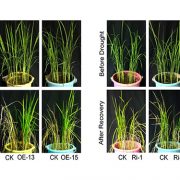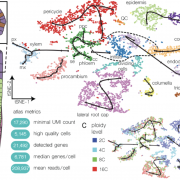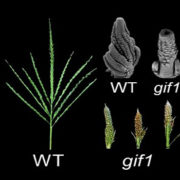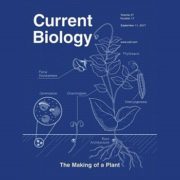Rice Leaf Erectness Tied to Phosphorus Efficiency
Ruan et al. discover a protein module that regulates rice leaf inclination in response to soil Pi availability. Plant Cell https://doi.org/10.1105/tpc.17.00738
Background: As an essential element for plant growth, phosphorus (P) is taken up by plant roots as inorganic Pi (Pi) from the soil solution. The amount of Pi in the soil that is available to the plant is often limiting for growth, because Pi forms insoluble precipitates with many metal cations and avidly binds to some plate silicates. Therefore, breeding P-efficient crops (that can readily take up Pi in P-deficient soil) is an important agricultural issue. Rice cultivars with erect leaves are more suitable for dense planting, which can enhance the efficiency of sunlight capture and improve rice productivity. In the mean time, dense planting can also increase the root contact with soil by area, which may enhance P efficiency in field. However, rice leaf inclination is affected by Pi availability in soil, with Pi-deficiency inducing leaf erectness. Therefore, uncoupling soil Pi availability from leaf inclination could be important for breeding P efficiency in rice.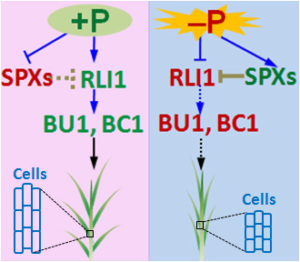
Question: Why does Pi-deficiency induce leaf erectness rice? What is the molecular mechanism underlying this trait and could it be “uncoupled” to create P-efficient plants with erect leaves?
Findings: Pi-deficient stress inhibits cell elongation in the lamina joint (where the leaf blade meets the stem) to restrict lamina joint size, and this induces leaf erectness in rice. We found that the Pi-starvation induced proteins SPX1 and SPX2 work together with a Pi-starvation repressed protein, RLI1, to inhibit lamina joint cell elongation. Therefore, the SPX and RLI1 proteins form a module to regulate rice leaf inclination in response to soil Pi availability.
Next steps: We plan to breed new rice cultivars with different canopy forms (small or large leaf inclination angles, given more or less leaf erectness) that are sensitive or insensitive to Pi availability, and test their Pi efficiency under dense planting.
Wenyuan Ruan, Meina Guo, Lei Xu, Xueqing Wang, Hongyu Zhao, Junmin Wang, Keke Yi. (2018). A SPX-RLI1 module regulates leaf inclination in response to phosphate availability in rice. Plant Cell. Apr 2018, 30 (4) 853-870; DOI: https://doi.org/10.1105/tpc.17.00738


